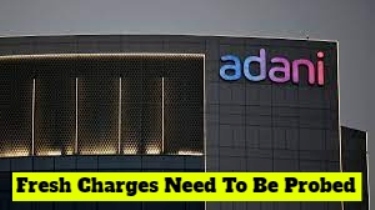

By Linus Garg
First publised on 2023-09-06 07:12:16
Are the recent reports published in the Financial Times of UK a recycling of the Hindenburg Report as the Adani group claims or are the charges new and need a further, and serious, investigation? Reports in the FT have made two points: one, that Vinod Adani, brother of Gautam Adani and hence part of the promoter group, secretly held 13% of the group's shares that were available in the market for trading by the public in 2017 and two, market regulator Sebi was informed in 2014 that the Adani group was using own funds to trade in free-floating stocks of its own companies.
These charges are serious because if Vinod Adani or those connected to him were secretly controlling 13% of the free-floating stocks in Adani group companies, it was in violation of the rule that the promoter group could not control more than 75% of its own stock. Then, if the group was trading in its own stocks with own funds, it was indulging in price manipulation and if Sebi had the information and did not act upon it, it proves that there was serious slippage in regulation. In both cases, further investigation is needed to bring out the truth.
The Adani group claims that the FT reports are a rehashed version of the Hindenburg report. The stock markets also seem to have believed that because unlike when the Hindenburg report came out to cause a rout in Adani group's shares, the FT reports have have had little or no impact. But the fact remains that the charges are serious and Sebi must address them to preserve the integrity of the markets, the interests of the investors and its own reputation as a regulator. Also, the charges need to be thoroughly probed to assure the nation that there are no gaps in the regulatory architecture.











